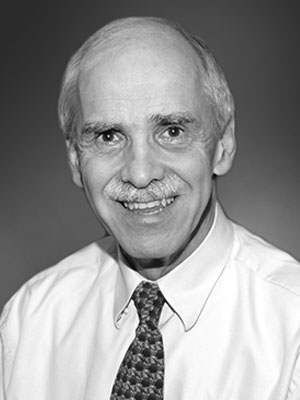Frederick Gregory
| Frederick Gregory | |
|---|---|
| Geboren | 3. Dezember 1942 |
| Beruf | Wissenschaftler |
Frederick Gregory (* 1942) ist ein US-amerikanischer Wissenschaftshistoriker und emerierter Professor der Universität Florida.
Lebenslauf
| Zitat: | «Dr. Frederick Gregory is Professor of History of Science at the University of Florida, where he has taught for 30 years. He holds a B.S. in Mathematics from Wheaton College in Illinois, a B.D. (Bachelor of Divinity) from Gordon-Conwell Theological Seminary, an M.A. in the History of Science from the University of Wisconsin-Madison, and a Ph.D. in the History of Science from Harvard University. Professor Gregory has received numerous grants for research in his field, including an Alexander von Humboldt grant from the German government and a fellowship from the Dibner Institute for the History of Science at the Massachusetts Institute of Technology. He was awarded the 2009 Joseph H. Hazen Education Prize for excellence in education from the History of Science Society. He also won the University of Florida's John Mahon Teaching Award for excellence in undergraduate teaching, as well as the Norman Wilensky Graduate Teaching Award. He has provided commentary for the American production of the television series The Day the Universe Changed. Professor Gregory's research interests have focused on German science in the 18th and 19th centuries, particularly as it reflects the larger cultural setting in which it is embedded. His two-volume undergraduate textbook, Natural Science in Western History, was published in 2008.»[1] |
| Zitat: | «Frederick Gregory was born on December 3, 1942, in Honesdale, Pennsylvania. He was the son of Richard and Eleanor Gregory. Following his secondary education, Gregory matriculated at Wheaton College (Illinois), earning his B.S. in Mathematics there in 1964. He then attended the Gordon-Conwell Theological Seminary, earning his Bachelor of Divinity there in 1968. He told an interviewer with Contemporary Authors Online that this somewhat unusual combination of training made it "natural that [he] would direct [his] research as a historian to the intersection of those disciplines." Gregory married Patricia Kowalski in 1967; the couple has two children.
Gregory continued his education, earning an M.A. from the University of Wisconsin at Madison in 1970. He began his doctoral studies that same year at Harvard University. While there, Gregory became interested in the History of Science as a discipline and became a member of its Newsletter Advisory Committee. In 1973, he completed his work on his dissertation: "Scientific Materialism in Nineteenth-Century Germany." Dr. Gregory began his teaching career following his graduation, accepting a position at the now-defunct Eisenhower College in New York State. He accepted an appointment at the University of Florida in 1978 and has remained there since. During his work at the University of Florida, he has published two book-length studies related to German history: Scientific Materialism in Nineteenth-Century Germany and Nature Lost? Natural Science and the German Theological Traditions of the Nineteenth Century. He also served as editor of The Eighteenth Century: A Current Bibliography from 1977 to 1990 (with co-editor Robert Hatch during the last eight years of that period) as well as contributing editor to Science and Culture in the Western Tradition and Geschichte der Wissenschaftsphilosophie [History of the Philosophy of Knowledge]. His work has earned him two American Philosophical Society grants, one from the Alexander von Humboldt Stiftung and another from the National Science Foundation. Administratively, Gregory served as chairman of the History Department at the University of Florida from 1991 to 1995 and as President of the History of Science Society from 1996 to 1997. He currently teaches in the History of Science program at the University of Florida. Gregory told Contemporary Authors Online of his goals for research:
He recently completed a 36 lecture set of audio and video material on the history of science from 1700 to 1900 for the Washington-based Teaching Corporation. The Volkswagen Foundation has funded his current work (with three other professors) on the subject of "Mysticism and Modernity."»[2] |
Einzelnachweise
- ↑ Professor Frederick Gregory, Ph.D., The Great Courses
- ↑ Frederick Gregory, Pennsylvania Center for the Book
Bücher
- Scientific Materialism in Nineteenth Century Germany. Foreword by Marx Wartofsky. Dordrecht and Boston: D. Reidel Publishing Co., 1977
- Knowledge, Belief, and Aesthetic Sense by Jakob Fries. Edited with an Introduction by Frederick Gregory. Trans. Kent Richter (Düsseldorf: Dinter Verlag, 1989)
- Nature Lost? Natural Science and the German Theological Traditions of the Nineteenth Century (Cambridge: Harvard University Press, 1992)
- History of Science: 1700-1900. Parts I, II, III. Transcripts of lectures produced by The Teaching Company. (Chantilly, VA: The Teaching Co, 2004)
- Natural Science in Western Civilization, Vol. I: Ancient Times to Newton. Vol. II: Newton to the Present (Boston: Houghton-Mifflin Publishing Co., 2008)
- The Darwinian Revolution. Parts I, II. Transcripts of lectures produced by The Teaching Company. (Chantilly, VA: The Teaching Co, 2009)
Gastdozent (Auswahl)
- Yale University, December, 1995: "Naturphilosophie and the Crisis of Reason" (Yale Seminar)
- Tallahassee, FLorida, 1999 "Historical Writing about Science and Religion"
- New Orleans, Louisiana, March, 1999: "History's Surprising Dialogue Between Science and Religion"
- Toronto, Ontario, July, 1999: "The Science Wars as Holy Wars"
- Houghton, New York, November, 1999 "The Science Wars as Holy Wars"
- Phoenix, Arizona, April, 2000: "Naturalism's Historical Challenge to Religion"
- University of Leeds, June, 2001: "The Science Wars as Holy Wars"
Netzverweise
- Webpräsenz: users.clas.ufl.edu/fgregory/
- University of Florida: Frederick Gregory
